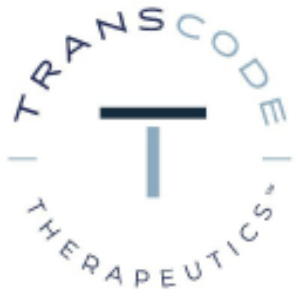TransCode Therapeutics Reports Publication of United States Patent Application Covering TransCode’s RIG-I Agonist Immunotherapeutic
BOSTON, Feb. 20, 2024 (GLOBE NEWSWIRE) -- TransCode Therapeutics, Inc. (NASDAQ: RNAZ), the RNA oncology company committed to more effectively treating cancer using RNA therapeutics, reported publication of United States Patent Application titled, “Nanoparticles and Template Directed RIG-I Agonist Precursor Compositions and Uses Thereof For Cancer Therapy“ (Pub. No.: US 2024/0042070 A1; Pub. Date: February 8, 2024).
The application describes compositions and methods to treat cancer using a novel class of immunotherapy inspired by the innate immunity of mammalian cells against microbes. This novel type of immunotherapy targets molecules called retinoic acid-inducible gene I (RIG-I)-like receptors (RLRs). RLRs are key RNA sensors that can be activated for the treatment of cancer using synthetic RNAs that mimic viral infection, directing the immune response against cancer. There is no assurance that any patent will issue from this application.
TransCode’s RIG-I agonist precursor comprises single-stranded 5’-uncapped biphosphate or triphosphate oligonucleotides having a sequence complementary to an endogenous microRNA. The precursor may be carried by a nanoparticle such as TransCode’s TTX delivery technology and may include a radiolabel for imaging or therapy. It is designed to activate the immune system against tumor cells with high specificity potentially resulting in effective treatment of multiple primary, metastatic, and recurrent cancers. What is novel about TransCode’s approach is the capacity to recruit pattern recognition receptors (PRRs), such as RIG-I, in a tumor-selective manner which TransCode believes is critical for clinical applications.
“TransCode’s tumor-selective RIG-I agonists could enable this novel immunotherapy against cancer by triggering the immune system to attack the specific tumor while sparing healthy tissue,” commented Zdravka Medarova, Ph.D., Chief Science Officer at TransCode. “Further selectivity against cancer may be achievable by linking RIG-I agonists to TransCode’s TTX delivery platform. This linkage mechanism is currently being studied in a first-in-human microdose clinical trial with a radiolabeled version of TransCode’s lead therapeutic candidate, TTX-MC138. TTX-MC138 consists of an iron oxide nanocarrier conjugated to a nucleic acid specifically designed to inhibit the oncogenic RNA, microRNA-10b. Preliminary data indicate that following dosing, radioactivity accumulated in the region of the metastatic lesions, consistent with accumulation of TTX-MC138 in lesions observed in preclinical qualitative studies. Data analysis from the subject dosed in this trial is ongoing and will be included in the final trial report.”
About TransCode
TransCode is a clinical-stage oncology company focused on treating metastatic disease. The company is committed to defeating cancer through the intelligent design and effective delivery of RNA therapeutics based on its proprietary TTX nanoparticle platform. The company’s lead therapeutic candidate, TTX-MC138, is focused on treating metastatic tumors which overexpress microRNA-10b, a unique, well-documented biomarker of metastasis. In addition, TransCode is developing a portfolio of first-in-class RNA therapeutic candidates designed to overcome the challenges of RNA delivery and thus unlock therapeutic access to a variety of novel genetic targets that could be relevant to treating a variety of cancers.
Forward-Looking Statements
This release contains “forward-looking statements” within the meaning of the Private Securities Litigation Reform Act of 1995, including, without limitation, statements concerning patent applications filed by TransCode, and statements concerning the therapeutic potential of TransCode’s development candidates and its TTX delivery platform generally, either on a stand-alone basis or in combination with development candidates. There is no assurance that any patent will issue from this application. Any forward-looking statements in this press release are based on management’s current expectations of future events and are subject to a number of risks and uncertainties that could cause actual results to differ materially and adversely from those set forth in or implied by such forward-looking statements. These risks and uncertainties include, but are not limited to: the risk associated with drug discovery and development; the risk that the results of our clinical trials will not be consistent with our pre-clinical studies or expectations or with preceding clinical trials; risks associated with the timing and outcome of TransCode’s planned regulatory submissions; risks associated with TransCode’s conduct of clinical trials; risks associated with obtaining, maintaining and protecting intellectual property; risks associated with TransCode’s ability to enforce its patents against infringers and defend its patent portfolio against challenges from third parties; risks of competition from other companies developing products for similar uses; risks associated with TransCode’s financial condition and its need to obtain additional funding to support its business activities, including TransCode’s ability to continue as a going concern; risks associated with TransCode’s dependence on third parties; and risks associated with geopolitical events and pandemics, including the COVID-19 coronavirus. For a discussion of these and other risks and uncertainties, and other important factors, any of which could cause TransCode’s actual results to differ from those contained in or implied by the forward-looking statements, see the section entitled “Risk Factors” in TransCode’s Annual Report on Form 10-K for the year ended December 31, 2022, as well as discussions of potential risks, uncertainties and other important factors in any subsequent TransCode filings with the Securities and Exchange Commission. All information in this press release is as of the date of the release; TransCode undertakes no duty to update this information unless required by law.
For more information, please contact:
TransCode Therapeutics, Inc.
Tom Fitzgerald, Interim CEO; CFO
tom.fitzgerald@transcodetherapeutics.com








